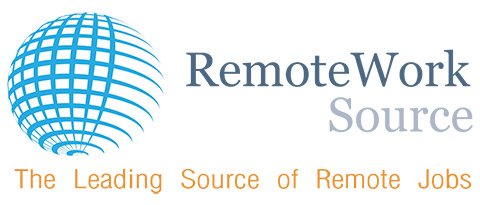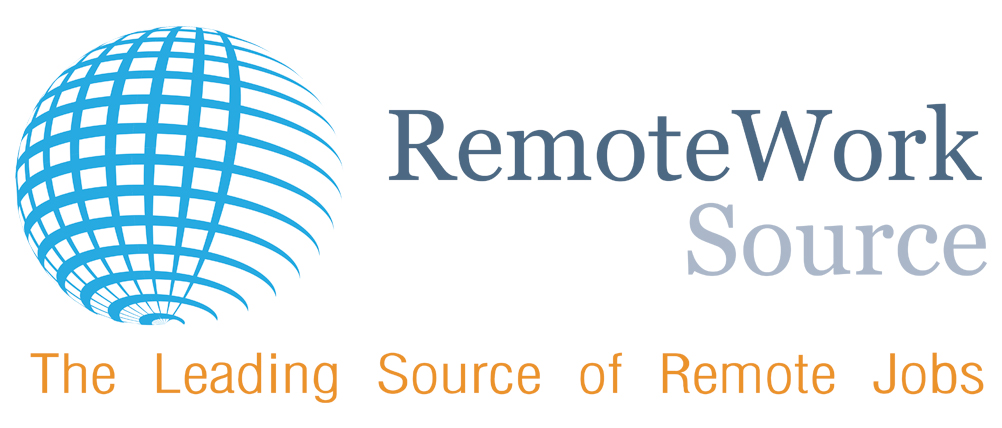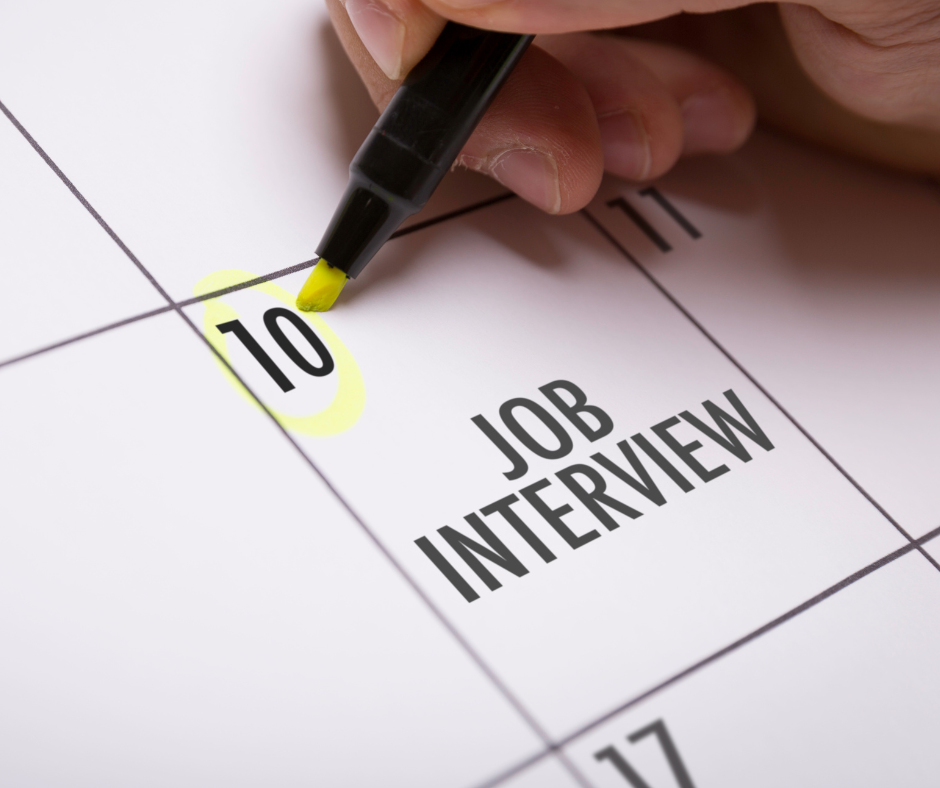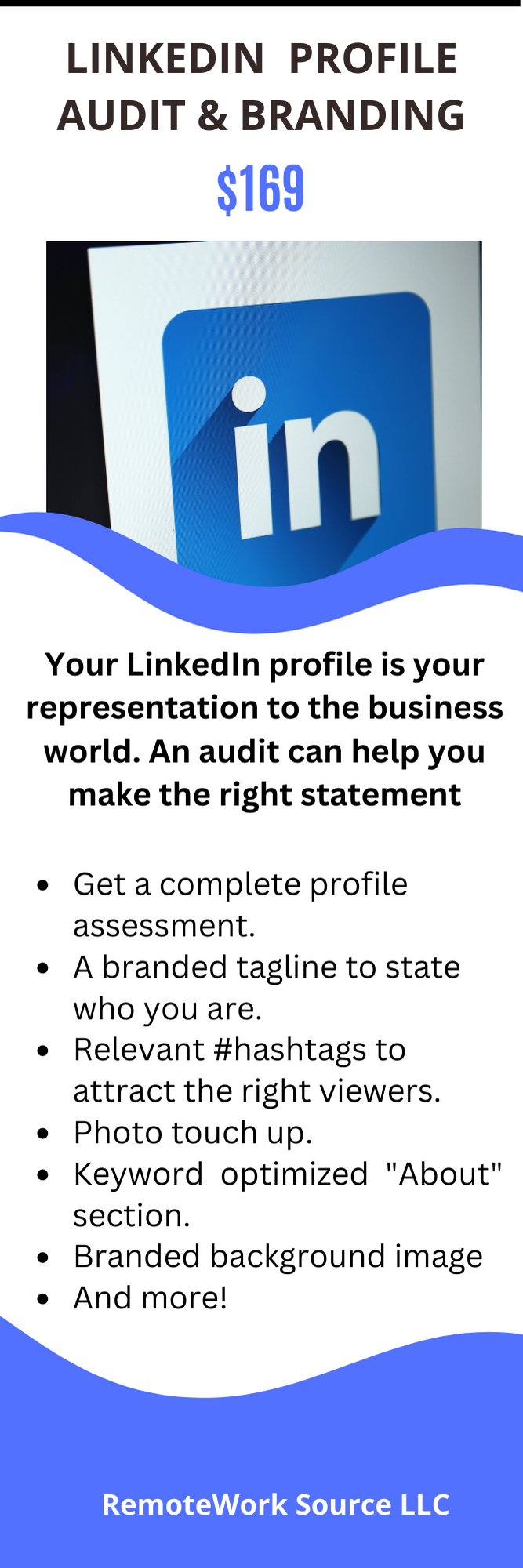The Ultimate Guide to Acing Your Next Job Interview (Even When You’re Still Employed)
Acing your next interview now means that, should you need (or want) to find a new job tomorrow, you have covered all your bases.
If you’re happily employed, particularly in today’s job market, you have much for which to be grateful. Aside from the obvious reasons, you also have the perfect opportunity to set yourself up for your next interview, should the need arise.
Losing a job (unexpectedly or otherwise, no matter why) is extremely stressful. In fact, job loss is one of the top 10 most stressful life events through which someone can go. Compounded with further stressful situations that directly result from the job loss, and it can feel unbearable.
Confidence is lower than ever. Feelings of anger and grief are intense, and family tensions may be high. Feelings of helplessness and desperation may cause important decisions to be dictated by emotions, increasing the likelihood of falling for scams. Everything in life feels like it’s spiraling out of control.
Why worry about acing your next job interview now?
Acing your next job interview now means that should you need (or want) to find a new job tomorrow, you are ready. You have covered your bases. This ensures there is minimal additional stress to pile on top of current stressful life events.
Acing your next job interview means covering these bases:
- Being clear of your market worth
- Having an updated resume
- Knowing your own strengths and weakness
- Staying abreast of desirable soft and hard skills
- Being skilled at interviewing
- Knowing how to converse on video
Trying to master these when you’re next job interview is quickly approaching is hard enough. But attempting to ace these while you’re also going through one of life’s most stressful times is a recipe for disaster.
As the saying goes, failing to plan is planning to fail.
Be clear of your market worth

Do you know your market worth? And important part of acing your next job interview is being clear on your worth.
Think about your current salary. Are you getting paid what you’re worth? Most people don’t know; they just hope so. A few people are clear on their worth and are getting it. And the rest feel they aren’t getting near what they deserve, but can’t tell you what it is they should get, either. Yikes!
Now, imagine you’re going on month six of a layoff, you land a job interview. The recruiter asks what your salary expectations are. My guess is that instead of a clear number popping up in your head, this comes up instead:
“Just pay me! I need a TON of money to catch up, but right now I need to get working before I fall further behind.” Nervously, you ask for $50,000.00, hoping you don’t sound greedy. It seems like so much money right now!
Lo and behold, they accept! Only for you to learn your actual market worth is $80,000.00. Your mortgage got paid, but how happy are you now? (You don’t have to answer out loud.)
When you go into a job interview with a clear number or range, things go differently than they did in the above scenario. Here’s why:
- No matter how stressed you are by a recent layoff, you are giving the same answer you would give if you didn’t feel stressed. That’s because your answer is based on intelligence, not guessing and desperation.
- Because you know what you’re worth, you convey utmost confidence, even for “someone without a job.” You might feel lousy at the moment, but you can trust yourself to respond on automatic pilot because you’re informed.
- You will probably get what you ask (or close) because you knew before you applied what the position was worth, based on your homework. This keeps you from wasting time applying for ANY position beneath your pay grade from the start.
 The time to figure out your market worth is now. Take an initial three hours to research it, and then a half hour to recheck it every six months. Date and document this research in your Handy-Dandy Notebook, otherwise known as your Career Journal.
The time to figure out your market worth is now. Take an initial three hours to research it, and then a half hour to recheck it every six months. Date and document this research in your Handy-Dandy Notebook, otherwise known as your Career Journal.
Finding your worth
There are many free resources out there that are helpful in determining your market worth. And you should use several of them in your research. This is because finding your worth is not as simple as entering your job title and city in Salary.com (for example) and coming up with a number.
Your job title is only one minor factor in determining your market worth. In fact, if used alone, it’s worthless. How many people do you see on LinkedIn with the title CEO? Millions? Gazillions? But do they all have the same market value? Of course not. If you go by title alone, everything appears equal. But a CEO of a major public corporation has much different responsibilities than the CEO of someone who runs a tiny company.
“Your pay is based on two things and two things alone – your value in the job market and what you will accept.” —Ash Norton
For starters, you need to find your market value based on your responsibilities. And how long you spent training for or learning each one. Then the years of experience performing each responsibility. Throw on top that the frequency you perform each responsibility. Add to this your level of proficiency in each one. And then determine if you can prove any accomplishments achieved from each one.
I hope you’re seeing why it’s important to understand your market worth, and why now is the time to figure this out, not wait until your next interview. And not when you’re sitting in the interviewer’s office in desperate need of a job!
Find your market worth, enter it in your Career Journal, along with how you came up with the number. Review this every six months, and make necessary changes.
Keep an up-to-date resume
When was the last time you updated your resume? You’ve been with Acme Company for 12 years and haven’t looked at it since? Good grief. Get that resume out now and give it a good look.
Now, let’s imagine after X amount of years with Acme you get laid off. You’re stressed. Are you able to recount everything you’ve accomplished at that company? I don’t mean what you’ve done. Doing is not accomplishing, by the way. Tell me what you achieved. Not something you see as an achievement, though. It only counts as an achievement if your previous company benefited from it.
Companies care about one thing: results. Anything not producing results is irrelevant.
Remember that week you spent hours creating gorgeous social media images that only got 50 clicks? Unfortunately, that wasn’t an accomplishment. But that 25-second comment you made on your company’s LinkedIn account that raked in 1,200 likes, 40 shares, 90 comments, and 75 page likes is an accomplishment. The difference? End results. Companies care about one thing: results. Anything not producing results is irrelevant. (Sad, I know.)
Now, years later, you’ve forgotten about that quick comment. But fortunately you recorded notes about your high engagement posts in your Career Journal, not just in your company’s database, so these metrics were an easy retrieve for your resume.
Know your strengths and weaknesses

Acing your next job interview includes being ready to provide the best answers to strengths and weaknesses questions.
Who knows you better than you do, right? So, during a job interview, when the manager asks about your greatest strengths and weaknesses, you’ll be ready to answer, right? I mean answer properly.
We all have strengths and weaknesses. Although they are none of anyone’s business, they will ask you about them and need to be ready to answer properly. Will you be able to do that on a dime during a most stressful time in your life?
Use your Career Journal to write them down, along with examples, and review them quarterly so you are ready for the hot seat.
Which strengths and weaknesses should you prepare?
Let me start by telling you it’s a bad move to try to mask a strength as a weakness to make yourself look good. Hiring managers have been there, done that; and it makes them cringe to see a good candidate screw up their job interview with a lame trick like that. (In other words, don’t say your weakness is that you work too hard, or care too much about your work, etc.)
To determine what strengths and weaknesses are best to share during a job interview, you need to understand the position and the individual company. Since you may not currently be looking for a job, the next best thing is to pretend.
If you needed a job, what position would you be trying for? Find a few job ads that most closely match what your target job would be. (Print them so you can add them in your Career Journal.) Highlight all the qualifications and soft and hard skills each job requires, and choose from those.
Why not choose something that is unrelated, so no matter what you say, you win? Because managers don’t care about your strengths and weaknesses that are irrelevant. They want to see that you are aware of something you’re weak at related to the job, how you recognized the weakness, what you’re doing about it, and how it’s going.
Once you’ve selected, write the answers out for each strength and weakness in your Career Journal, and commit them to memory. Or, at least, be able to repeat the process during your next job interview without being unprepared and overcome by nervousness or stress.
Stay current on desirable hard and soft skills
To begin, using the same job ads you printed out, make note of the desired hard and soft skills required. Understand why they emphasize each of them. Identify the ones you have, and those you don’t, and need to upskill.
Next, learn what skills are most valued in your industry. Are you in the customer service industry? There are some basic skills necessary for this industry across the board. However, a customer service agent for a retail giant needs a specific set of skills; a customer service agent for a mental health facility needs a few different ones. And a customer service agent for a collections company needs a few other ones. All connecting with customers, but for very different reasons, thus with varying skills needed. Make sure you know what they are and that you have them.
Some skills employers want in staff regardless of profession or industry. Good communication, for example. Learn what these are and upskill if necessary so that you are ready. Keep track of all this in your Career Journal.
Upskilling
If you find you are short a skill or two, this is a great time to bring them up to speed. There are many resources available online to help you do this. (Including free!) Depending on your profession, getting certificates to show your efforts to include on your LinkedIn profile and print out for your Career Journal are helpful.
Webinars, seminars, a college course, or via professional associations are other ways to upskill. Make use of all the resources you can while you may have a few “extra” dollars, and when you are unstressed and not desperate to find a job. There is no time like the present, as they say.
Be a skilled interviewee
Are you skilled at interviewing? Most people are not. One reason is because they confuse skilled with rehearsed.
Rehearsing is an important element of building job interview skills, but it’s only a part. If all someone does is rehearse prior to an job interview, they can come across to a hiring manager as a B-Rated actor: insincere, unauthentic, cringy, and just not that likable. That’s because they haven’t learned to self-regulate well enough to mask their nerves, which dictate behaviors that affect interview performance.
Someone who has job interview skills has these three elements that hiring managers look for, and also want to hire. In order of importance, they are:
- Likability
- Body language
- Preparedness
Likability
Kind of subjective, right? Not necessarily.
“Likability is not an inherent quality. It can be developed. You as a job seeker can actually learn to be likable. And it’s not just about being ‘nice,’ or ‘charming’ or ‘friendly.’ Likability involves knowing that there are certain qualities to abandon.” (Fast Company)
While likability can be developed, admittedly, it still can be harder for some than others. Therefore practice and rehearsing are important. During a rehearsal, such as a mock job interview, you learn much more than the “right answers” in response to certain questions.
Because every hiring manager is different. There are no perfect answers. It’s all about building rapport. For example, likable people:
Are active listeners. They don’t interrupt or finish people’s sentences. They validate others’ thoughts or feelings. They nod their head, and say “mmm hmmm” during a conversation to let the talker know they are paying attention. And they repeat parts of what they hear to ensure they understand.
They have business etiquette. They show respect toward someone in authority. (This doesn’t necessarily mean they respect them as a person, they just recognize the current difference in position, and show deference because of it.)
When they meet someone, they smile, make eye contact, and shake their hand. And they’re presentable. This doesn’t mean fashionable or imply any set physical characteristics. It means clean, neat, smells pleasant, but not overbearing.
“Likeability during an interview will automatically take you to the next step towards being screened for competency. Once you pass the likeability test, your background and experience are viewed in a more positive light because interviewers naturally tend to be less critical when they like you,” writes Kimberly Thompson on MSN.com.
Indeed, if a person isn’t likable, being stellar in every other area doesn’t matter much.
Body Language

While interviewers realize candidates are nervous, it’s still annoying to see them overcome with nerves. Hair touching, face touching, scratching, crossing arms, shaking a knee or foot are all annoying body language a skilled interviewer doesn’t do. And, like fear, anxiousness is contagious. Therefore, your nerves will cause them to feel unsettled.
At the reverse side, sitting slouched, or acting too casual, greeting someone with “Hey, how’s it going?” is interpreted as you not seeing the importance of the job interview process, or position.
Coming unprepared

Other not-so-tolerable areas of failing to prepare include:
- Not having an actual answer about why you want the job. Unless you’re a candidate who’s a rare find, don’t expect the hiring manager to sell you the position. You need to articulate why you want to work with them.
- Not being able to show you understand what the company is about, what they stand for (history, mission, values), what they do (business model, goals), or who the people are that run the company.
- Not being able to offer straightforward answers to behavioral questions, or talk about your accomplishments in previous jobs.
- Not asking thoughtful questions following the job interview are signs of disinterest in the position itself and show more of an interest in just getting hired.
- Not knowing your desired salary, or how to negotiate a salary and benefits shows inexperience or lack of confidence.
Being likable
If possible, have a mock interview with a friend or family member, with someone off to the side recording. Have them record you from the moment you enter the interview, for a few minutes into a conversation. Then review it. While far from replicating an actual interview, you can still learn a few telling things.
How is your body language? What expressions are you using? What is your overall impression of yourself? Would you find yourself someone you’d want to spend more time with based on just a few brief minutes? Document all of this in your Career Journal. Note improvements needed.
Consider investing in a few professional mock job interviews. According to an IT upskilling site, Clarusway, “Since your mock interview simulates a real job interview, it helps you to learn how to answer specific interview questions and get comfortable with those answers. Additionally, practice interviews help you to develop appropriate strategies for the live interviews by refining your communication skills (especially for non-native English speakers), and reducing your stress by practicing all of the possible scenarios that could come up.”
Keep practicing (and learning) until you become skilled at making a likable, great first impression. And do it now. You do not want try to give yourself a crash course when you are in the emotional state we discussed earlier in this article!
Get comfortable talking online

Acing your next job interview includes mastering online conversations by being focused, being relaxed, and eliminating distractions.
If the pandemic taught us anything, it’s how to make use of technology. Especially talking to others online with a camera. As a Gen X-er, I’ll be the first to admit this was not comfortable for me. I’ve heard from other folks my age—particularly women—that this was a big adjustment.
But online interviewing, client meetings, and other business functions are here to stay. I had no choice but to adapt. If you are someone who still hasn’t needed to converse online in front of a camera, it’s time.
Your next job could be remote. That means most of your meetings will be online. Company social gatherings will be online. But even if they’re not, more and more companies are switching their interviewing online, rather than in person. You may never meet them until you make it to a final round of interviews—or you’re hired.
Remember that likability factor we talked about above? You need it online, too. But now you need to project it through the camera. Even naturally likable people, if not skilled in online interviewing, can miss an opportunity.
Being likable during an online job interview
Anytime you meet someone, eye contact and a pleasant smile are crucial. On camera, however, you have to “make contact” through the screen. Where should you be looking to ensure you’re making eye contact? You need to know this!
Otherwise, your eyes will be wandering around your monitor searching for the sweet spot that lets you appear to be giving them eye contact. But on their end, your wandering eyes look like you’re glancing around the room instead of focusing on them. How would you interpret a person who won’t look you in the eye, but is roving around the room? Not very likable, right?
Another potential challenge is being able to see ourselves on screen. Whether out of vanity or worry, it’s easy for our eyes to keep darting up to our image. This is noticeable to the other party. Additionally, it distracts your focus if you notice something in your background you wish you had moved, or you see a few hairs out of place that you want to fix.
“A lot of people feel it can be distracting to see themselves on the screen for hours at a time,” writes Suzanne Degges-White Ph.D. “For the more vain among us,” she continues, “they will take special care to make sure the lighting is right, the tilt of the screen just right, and they are wearing their best colors from the waist up. They can actually take a lot of pleasure in admiring their image on the screen. Others of us, though, have a hard time being ‘OK’ with our cameras on and we can feel ‘exposed’ in ways that we don’t normally feel in group situations.”
Getting comfortable online
One way to grow accustomed to being online and learning to ignore ourselves is to practice. You can begin by using a children’s storybook, and reading it to yourself in front of the camera, only glancing down long enough to grab the next sentence. (Yes, at first you will pray no one hears or sees you!) If you do this repeatedly, you’ll have memorized the book, and be able to recite the entire book without looking down.
Record everything you do this so you can review your progress, making notes in your Career Journal.
Within a short time, you will notice that you stop looking at your image in the corner. You stop clearing your throat. Your hands loosen up and you begin to gesture, naturally, like you would in a comfortable conversation.
You’ll also realize what works for your hair, clothing colors, background, monitor angle and so much more. When the time comes to have a genuine conversation (by now, a job interview will feel more like a conversation), you will exude friendliness, confidence, and you will focus on the other person.
And you will be likable.
Wrap Up
With so much ground to cover, can you see why it’s imperative to prepare for a job interview now? I have much respect for those who are going through duress from a job loss, and trying to do these things at the same time.
Incidentally, creating your Career Journal will reap benefits for you even in your current job. Knowing your worth, for example, isn’t useful just for a new job. It will give you a huge edge when you decide to ask for a raise or promotion.
During a performance review, your Career Journal will highlight accomplishments your supervisor “accidentally” overlooks. You will have details, including metrics, that are undeniable. This will increase your confidence, as you will have clear evidence of how you benefit the company.
“You aren’t paid what you’re worth; you’re paid what you can negotiate.” —Randstad
Let’s talk more about it. Join us on Facebook and LinkedIn
Does your resume need help? Check out our resume rewrite packages!
Category: Expert Advice, Interviewing, Mental Health, Unemployment, Work Trends















Helpful guide that everyone can refer through job hunting process.
I’m glad you found this helpful.